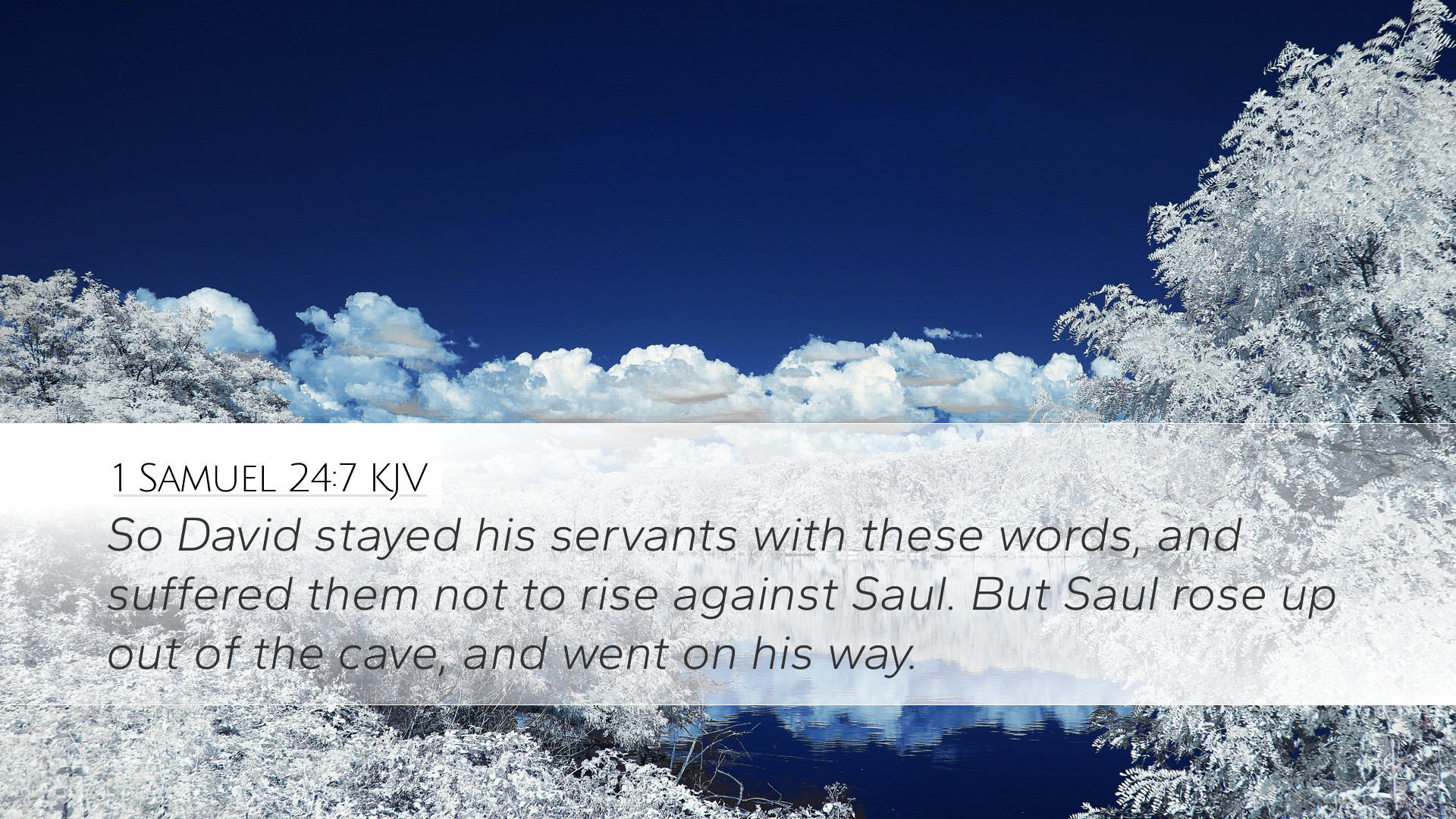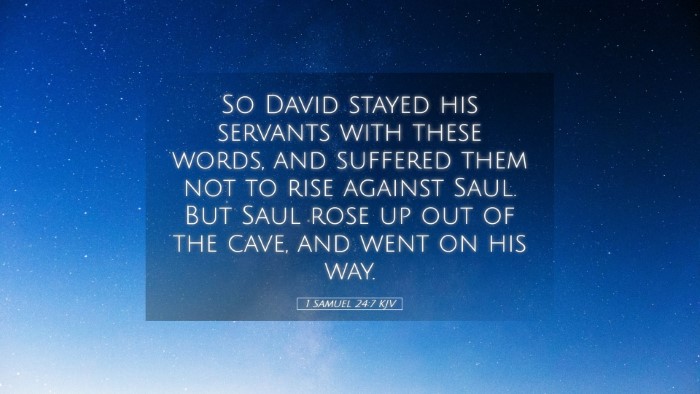1 Samuel 24:7 (KJV): "So David stayed his servants with these words, and suffered them not to rise against Saul. But Saul rose up out of the cave, and went on his way."
Commentary on 1 Samuel 24:7
This verse represents a pivotal moment in the narrative of David's ascent to kingship and his relationship with King Saul. The complexities of their relationship illuminate core themes of leadership, mercy, and divine providence.
1. Contextual Background
The story unfolds in a critical phase of Israel’s monarchy, where King Saul, consumed by jealousy and paranoia due to David’s rising popularity, becomes a relentless pursuer. David's sparing of Saul’s life in the cave signifies not only an act of mercy but also a profound moral stand in the face of adversity.
2. David's Restraint
David’s reaction to Saul's predicament—having the opportunity to kill him yet choosing to spare his life—is a cornerstone in understanding his character. Commentators highlight various aspects of this restraint:
- Moral Integrity: Matthew Henry notes that David's refusal to harm Saul, despite the provocation, exemplified an adherence to the moral high ground. David understood Saul’s anointing as king and chose to respect God’s appointment.
- Divine Trust: Albert Barnes emphasizes that David’s actions stemmed from his faith in God’s timing and justice. Rather than taking matters into his own hands, David trusted that God would deal with Saul in His own way.
- Leadership Model: Adam Clarke points out that David’s behavior serves as a model for all leaders suggesting that compassion, even towards adversaries, is a critical attribute of true leadership.
3. Theological Implications
The implications of David’s decision extend beyond the narrative, inviting deeper theological reflections:
- God’s Sovereignty: David's decision to spare Saul is often viewed as an acknowledgment of God’s overarching sovereignty in affairs of men. Clarke notes that through David's restraint, we witness a dynamic interplay between human action and divine will.
- Forgiveness and Grace: The act of forgiveness portrayed here is significant. David’s unwillingness to retaliate highlights the themes of grace and mercy that transcend personal vendettas—a reminder of Christ’s teachings on forgiveness in the New Testament.
4. Application for Pastoral and Theological Reflection
For pastors, students, and theologians, the reflections from 1 Samuel 24:7 raise essential questions for personal and communal application:
- Conflict Resolution: How can one embody a spirit of peace in the face of conflict? David’s example prompts leaders to seek divine guidance before reacting to conflict.
- Handling Opposition: What does it mean to respond to opposition with grace? Kingship calls for an understanding that, like David, one is often placed in vulnerable situations through no fault of one’s own.
- Modeling Christ-like Love: In a world rife with retaliation, David's example poses a challenge: fulfilling one’s obligations to love one’s enemies and resist the temptation for vengeance.
5. Conclusion
The narrative surrounding 1 Samuel 24:7 encapsulates fundamental teachings on mercy, leadership, and divine providence. David’s choice to spare Saul serves as a timeless reminder that true strength lies in virtue and restraint. Ultimately, this passage beckons readers to ponder their responses to adversity and their reflections of Christ’s love in a fractious world.


